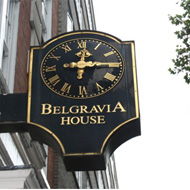
MRCVSonline calls for regulation to be more evidence based
Over the past year, the RCVS has come under fire from the profession over a number of issues – the Chikosi disciplinary hearing, calls for mandatory home visits to be removed from the Code of Professional Conduct, concerns over aspects of the new Royal Charter and, most recently, the decision to remove post-graduate qualifications from the register.
The significant response from the profession on these issues appears to highlight a disconnect between college decisions, and the expectations and views of members.
Commenting recently on the lack of response to consultations, RCVS president Neil Smith said the college goes to “great efforts” to encourage people to respond – using the veterinary press, e-newsletters, RCVS News, social media, webinars and face-to-face meetings, for example.
However, despite this just 37 individuals and 11 organisations responded to the recent consultation on a new Royal Charter.
Colonel Smith recently told MRCVSonline: “Of course, we can only put the word out there, it is up to the profession to respond if they feel strongly enough about our proposals – whether that's for or against.”
Despite the somewhat lacking response to the Royal Charter consultation, more than 1,600 people signed an e-petition on change.org calling for the college to repeal its decision to remove post-graduate qualifications from the register.
This begs the question – what is the real reason the profession voices concerns about college decisions so readily via petitions and social media, compared to the low response to consultations? Furthermore, can the college learn from this with regard to preferred communication methods and adjust its consultation processes accordingly?
In response to the outcry from the profession, the RCVS operational board recommended the council review its decision on post-nominals. Col. Smith said: “This episode demonstrates that we do listen, react and take action where appropriate.” However, the question remains, why was a decision made in the first place that was so against the grain of members' wishes?
MRCVSonline suggests that decision-making should be more evidence based, and for the onus to be with the RCVS to engage and carry the majority of the veterinary community with it on its journey to becoming a first rate regulator. Perhaps, where there is no appetite for change the RCVS should stop, listen and not force the issue. Where change is necessary it should get the “informed consent” of its members through online systems. The RCVS should also consider the impact its non-regulatory activities and ambitions have on its role as a trusted and impartial regulator.
Much has changed for the better at the college in recent years, with the appointment of CEO Nick Stace, an operational board, the closure of the RCVS awarding body and more focus on webinars etc. However, the RCVS should seriously review its strategy and decision making processes and ensure that it is “at one” with the profession.
Image © RCVS



 The Veterinary Medicines Directorate (VMD) is inviting applications from veterinary students to attend a one-week extramural studies (EMS) placement in July 2026.
The Veterinary Medicines Directorate (VMD) is inviting applications from veterinary students to attend a one-week extramural studies (EMS) placement in July 2026.